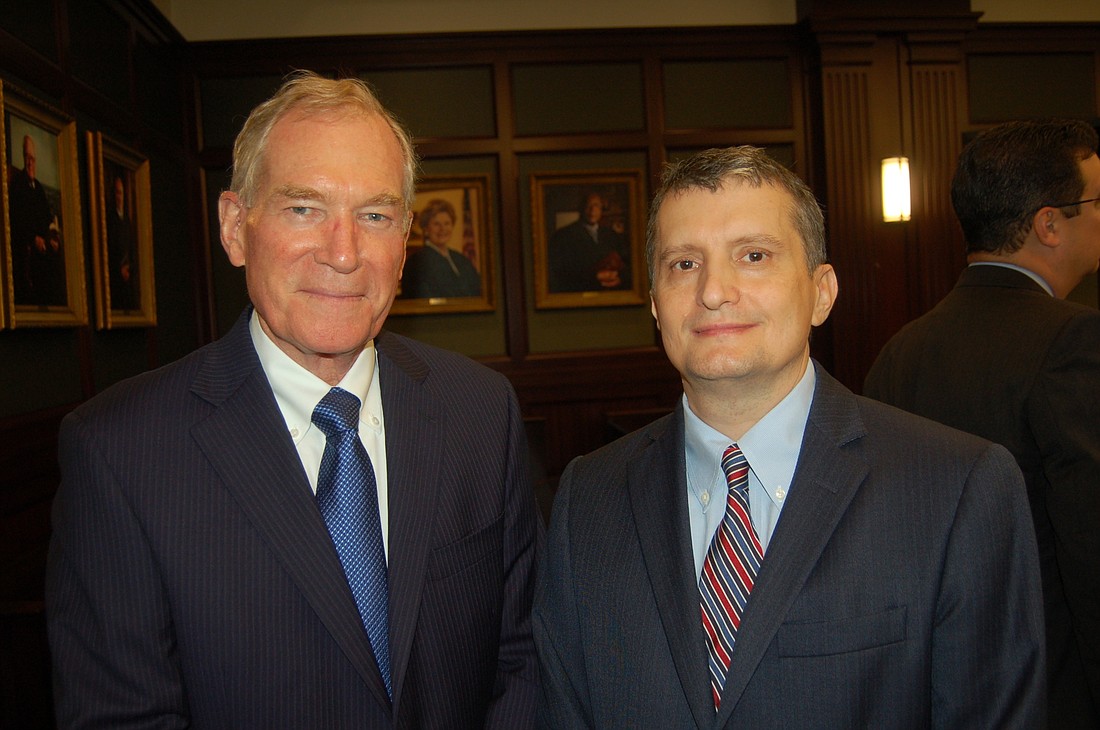
Florida Coastal School of Law filed suit in federal court Thursday against the American Bar Association alleging that the ABA violated due process in its accreditation review process.
The complaint and demand for jury trial and injunctive relief filed in the U.S. District Court Middle District of Florida by Florida Coastal and InfiLaw Corp., which owns the school, requests the court vacate and set aside an April decision by the ABA’s accreditation committee and prohibit its enforcement; enjoin the ABA from withdrawing Florida Coastal’s accreditation; and award damages.
The lawsuit stems from the ABA notifying the school in October that while it is in compliance with general standards, Florida Coastal is out of compliance with standards related to admission requirements and the school’s ability to prepare its students to pass the Bar examination and enter the legal profession as attorneys.
A spokesman for the ABA said it does not comment on pending litigation.
Florida Coastal President Dennis Stone and Dean Scott DeVito appeared before the Accreditation Committee of the ABA Council of the Section of Legal Education and Admissions to the Bar in March and submitted data related to the charges.
The ABA issued the committee’s finding in April.
“We’ve gone through the process with the ABA. We attempted to provide them with information we believe shows we’re in compliance,” DeVito said.
He said that includes data showing that Florida Coastal’s admission requirements are more stringent than 52 other law schools and that the school has for the past three years incrementally increased its minimum requirements for admission based on Law School Admission Test (LSAT) scores.
“There are law schools with lower credentials than ours that are found to be in compliance,” Stone said.
DeVito said Florida Coastal students ranked fourth in the state among 11 law schools in first-time passage of the February Florida Bar examination and in November, its students ranked No. 1 in the Multistate Professional Responsibility Examination administered by the National Conference of Bar Examiners.
In addition, DeVito said the committee did not recommend the school’s accreditation be revoked, or place Florida Coastal on probation, but only directed the school to begin in October submitting detailed performance reports at the end of each semester.
“All they said is to submit reports. They didn’t tell us what we have to do to get back into compliance. We have no guidance whatsoever. That’s a failure of due process,” he said.
Stone said the ABA’s position represents a shift in the national organization’s policy.
“I’ve been working with the ABA for 40 years. At one time, the ABA helped schools deal with issues. The helping part has disappeared,” he said.
“The ABA has shifted to an antagonistic model,” DeVito said.
Stone said one reason for filing the lawsuit is to hopefully bring the matter to its conclusion sooner rather than later, since the reporting requirement schedule would “take us all the way through 2019, at least, to get through the process.”
DeVito said Florida Coastal has notified the ABA that it intends to appeal the committee’s decision, but stronger action is needed to maintain the school’s reputation and standing.
“The best way to protect our students and alumni is to file suit,” he said.